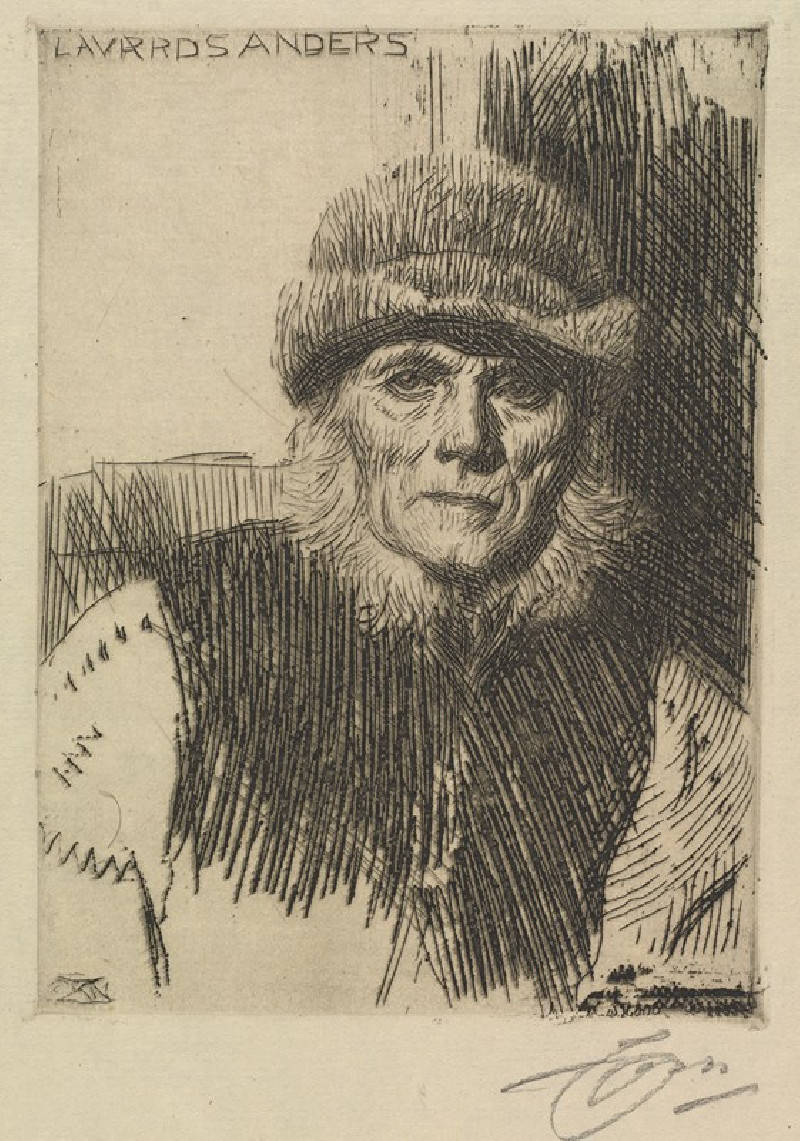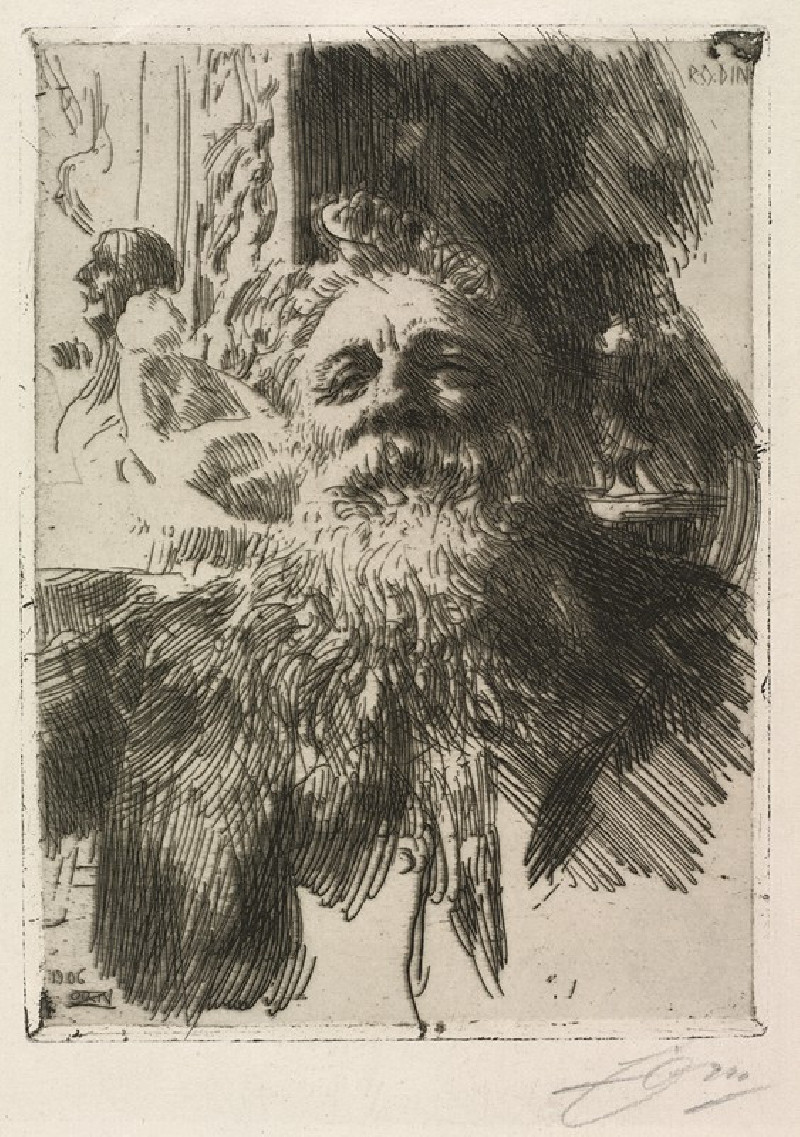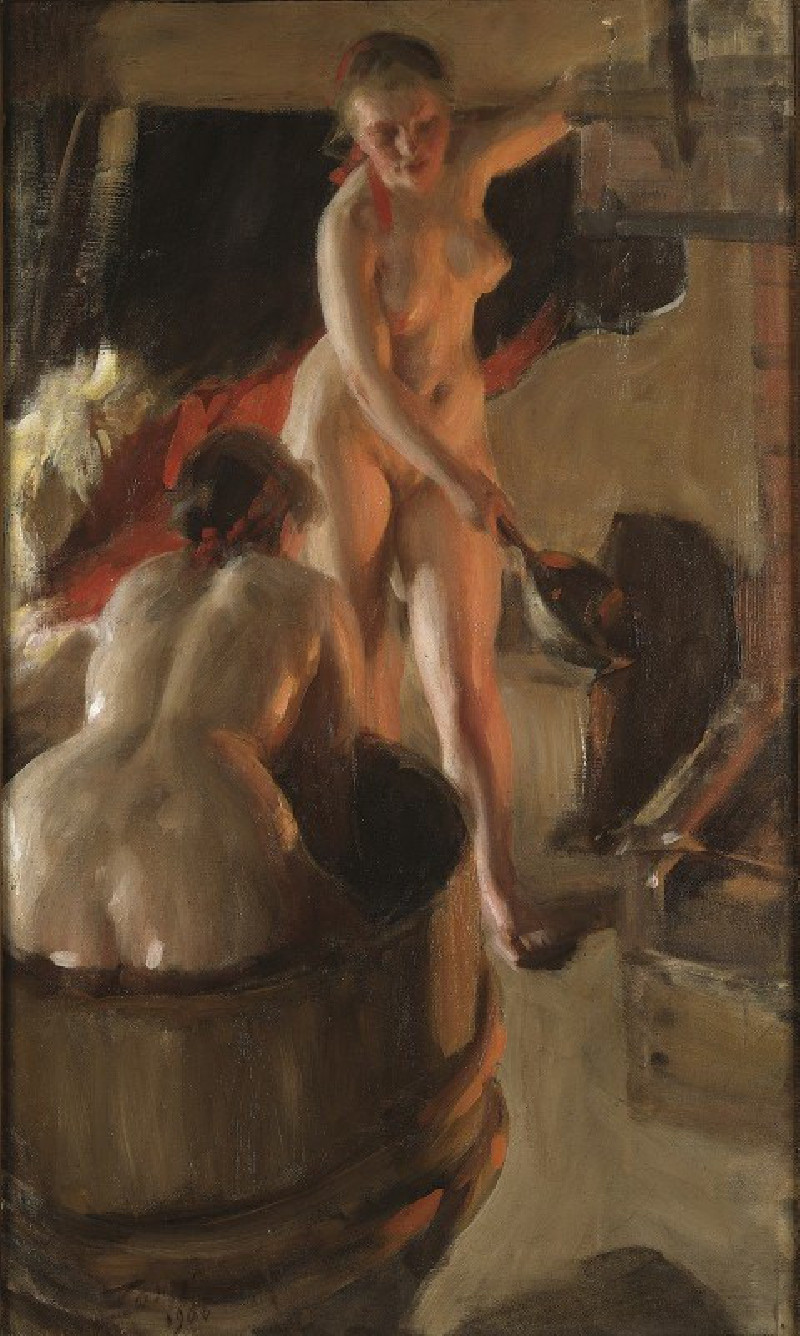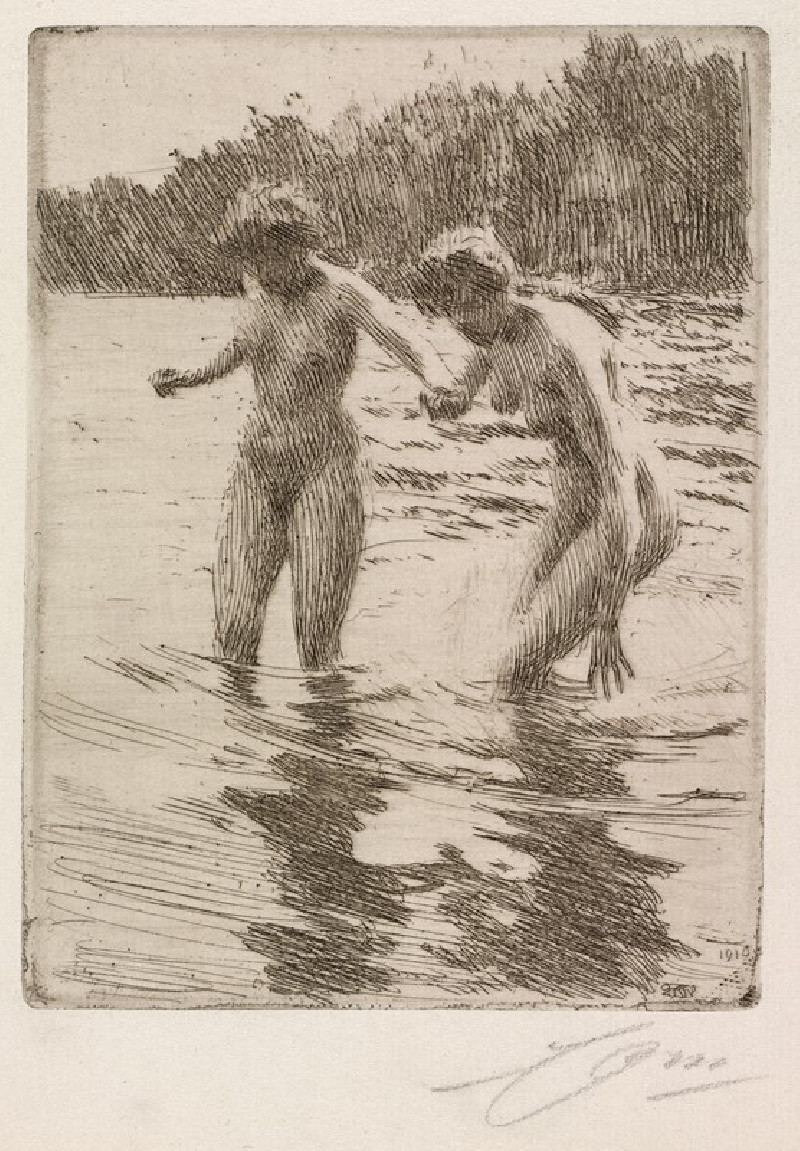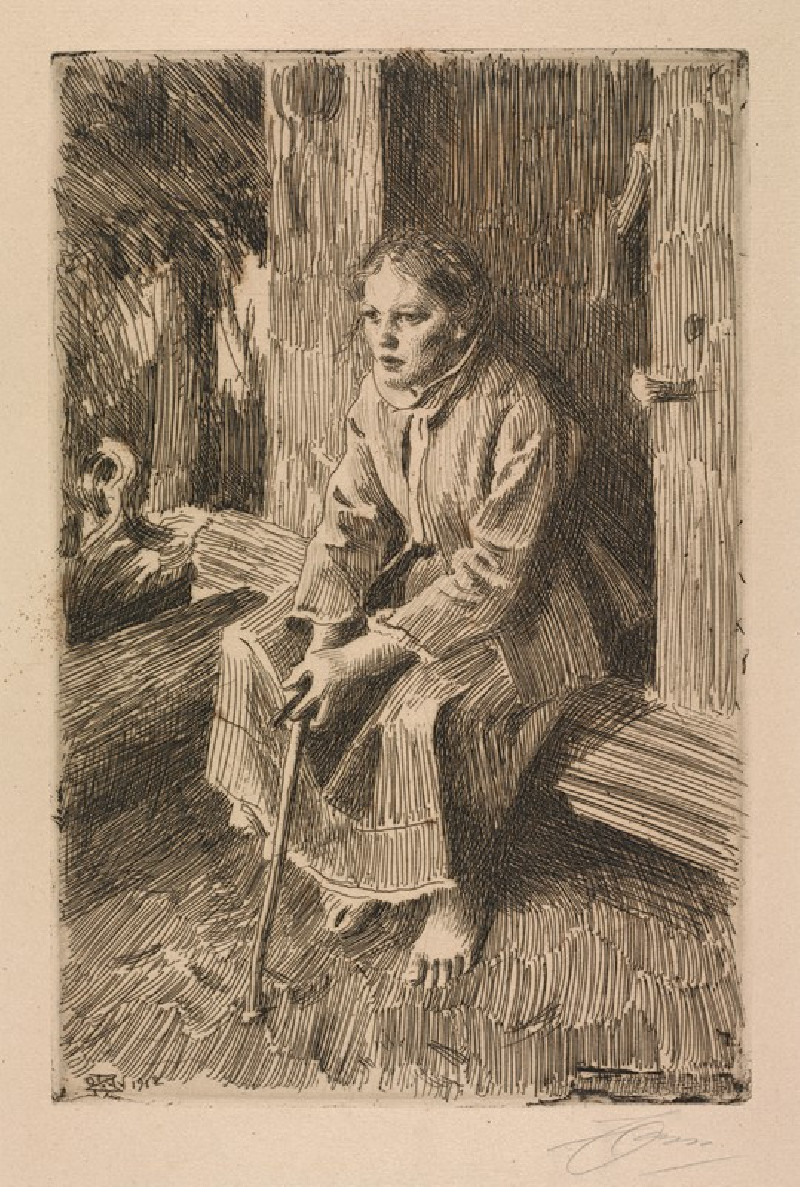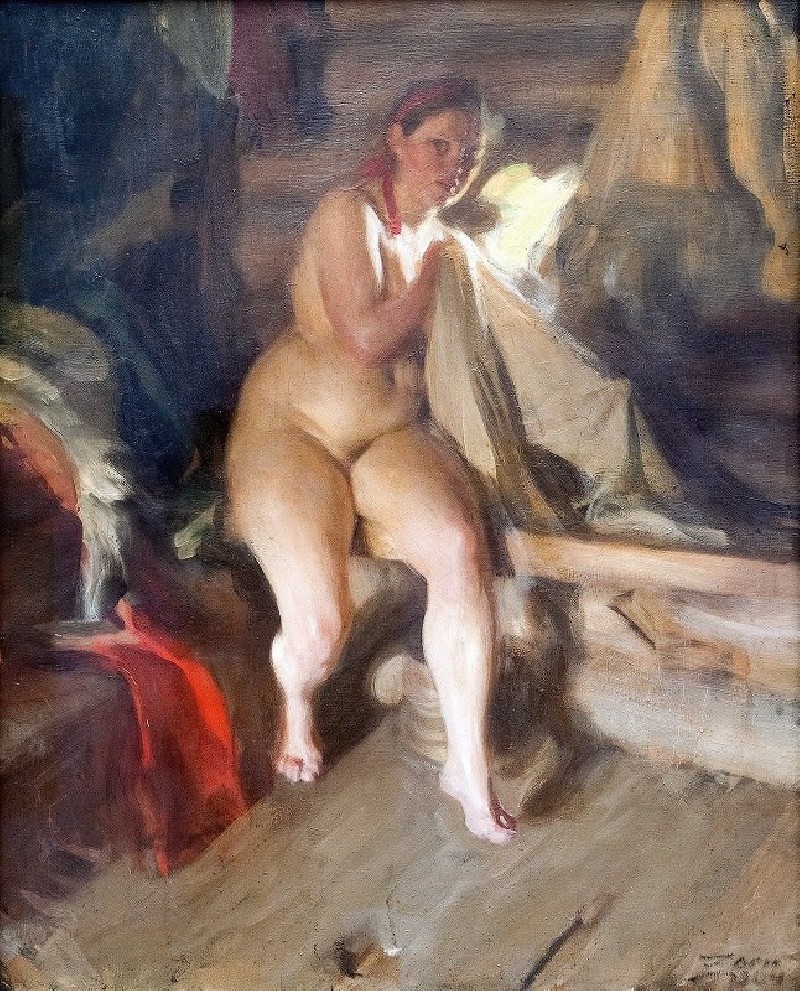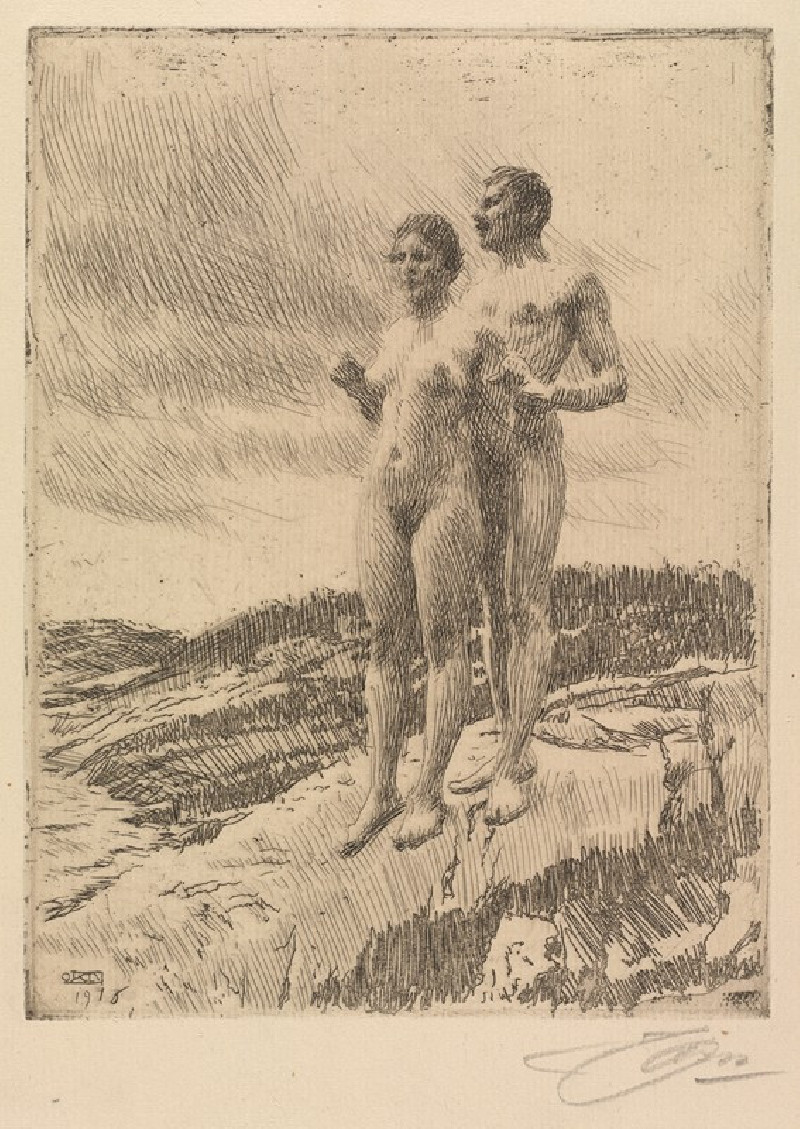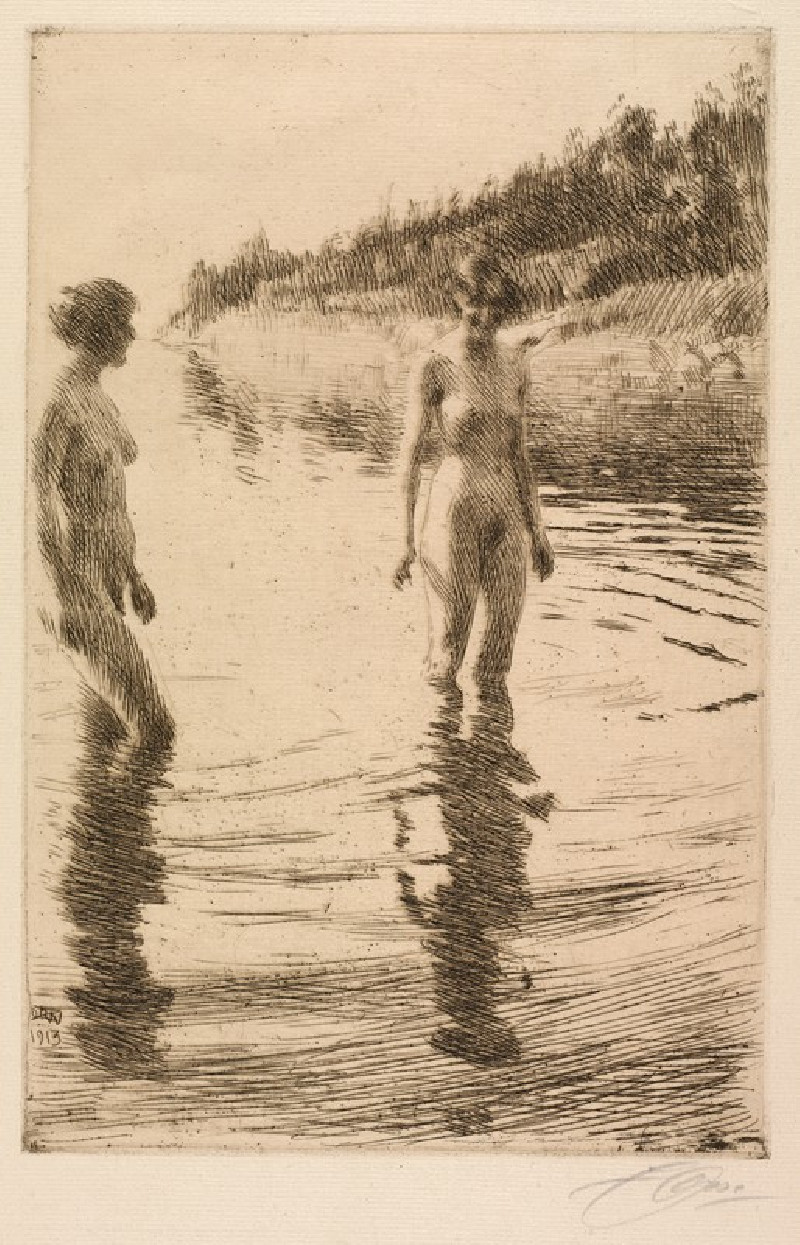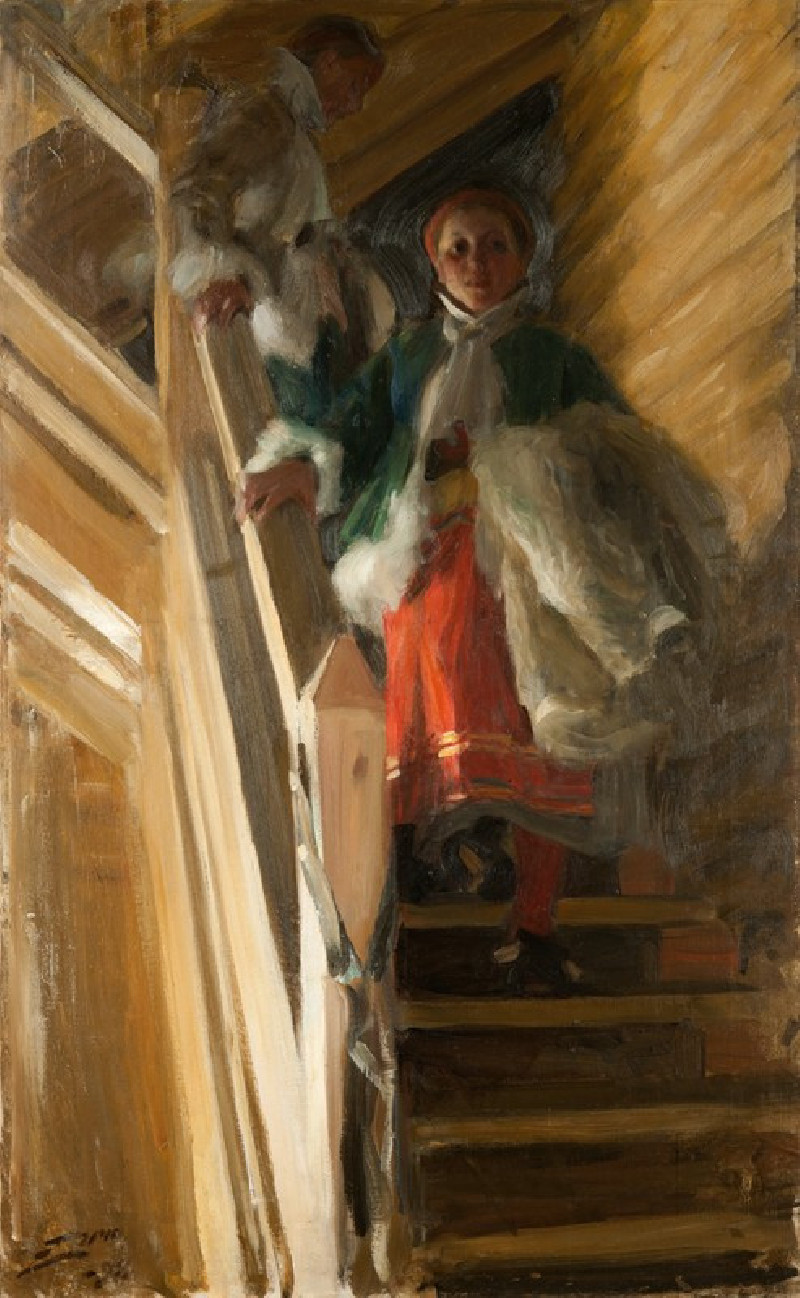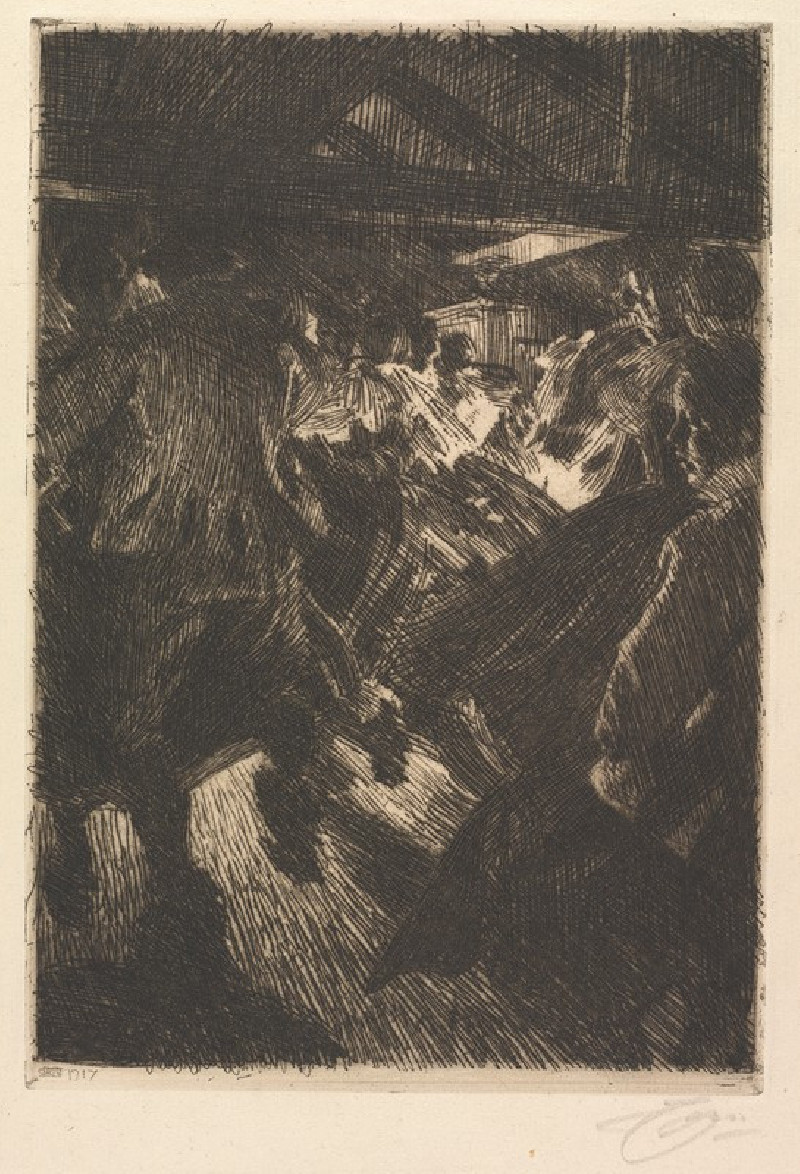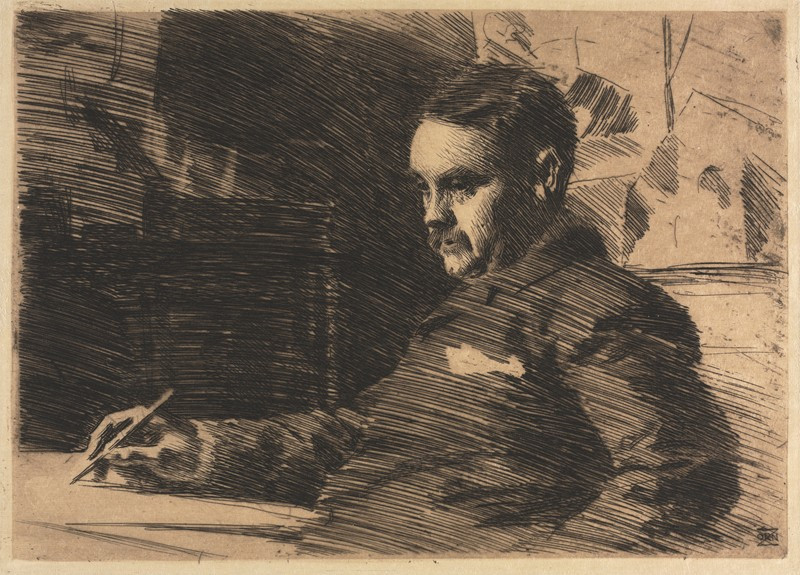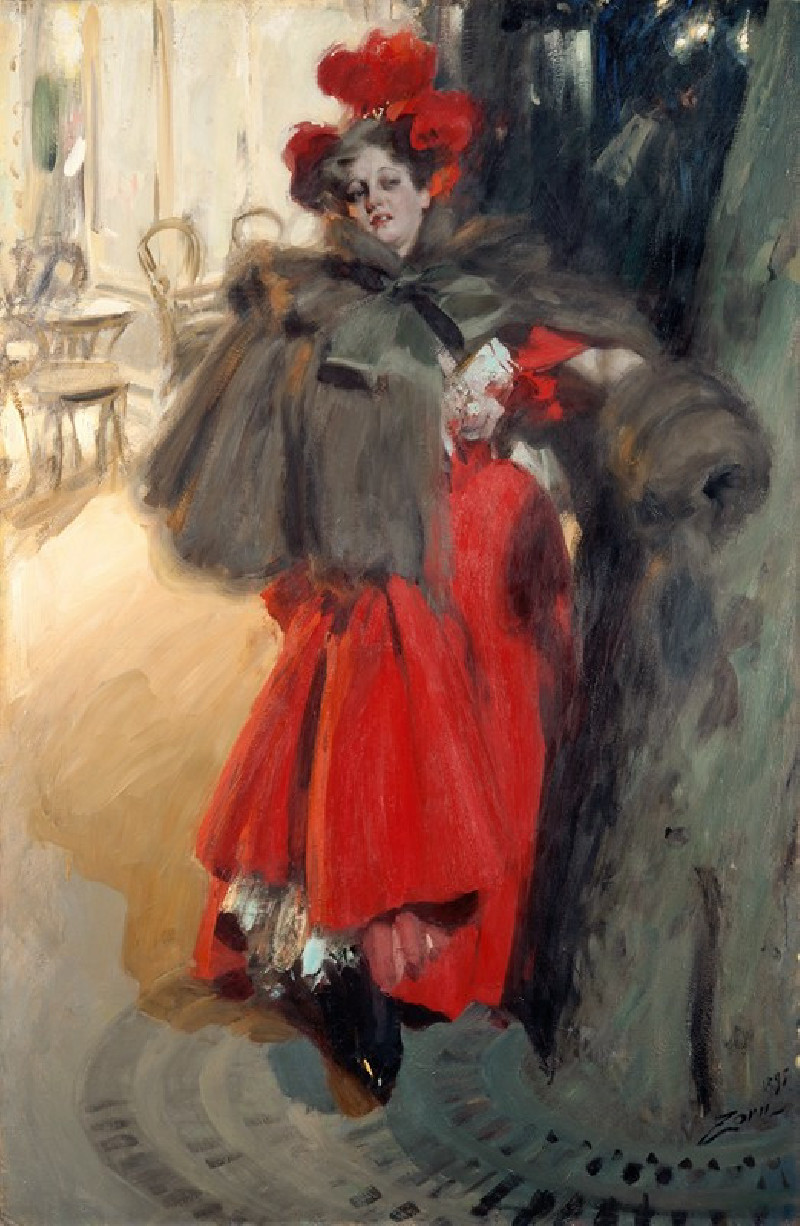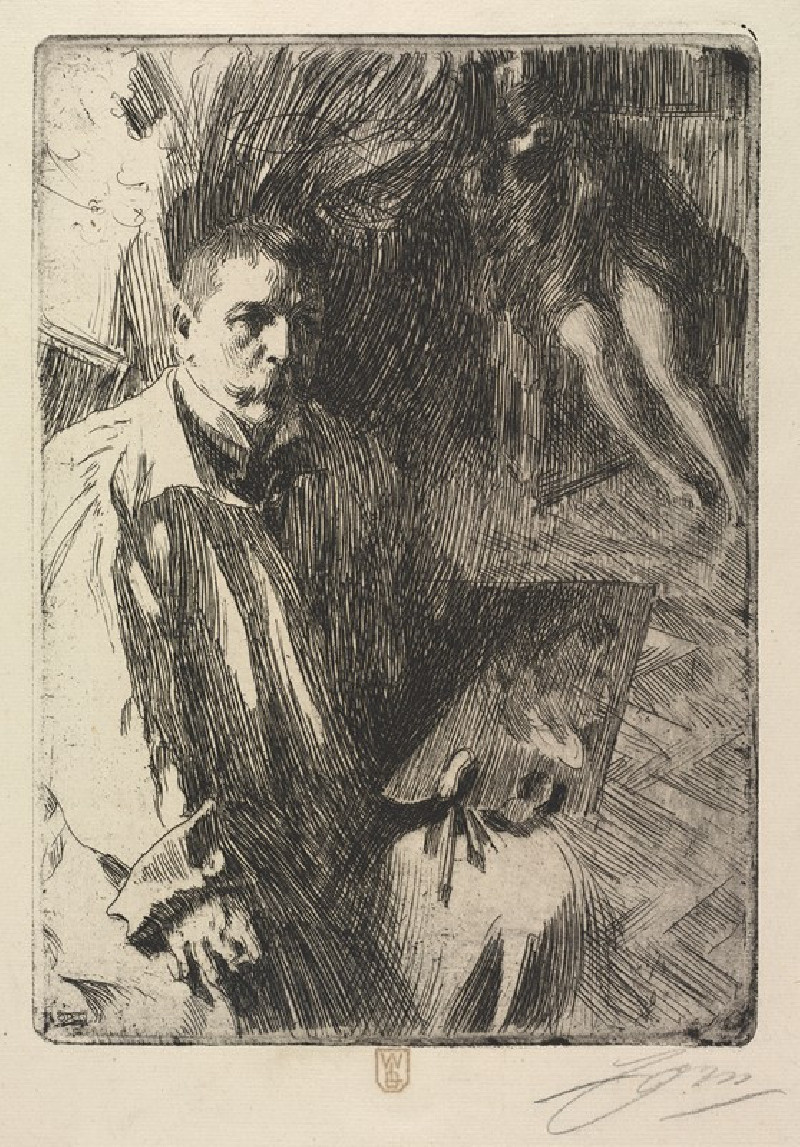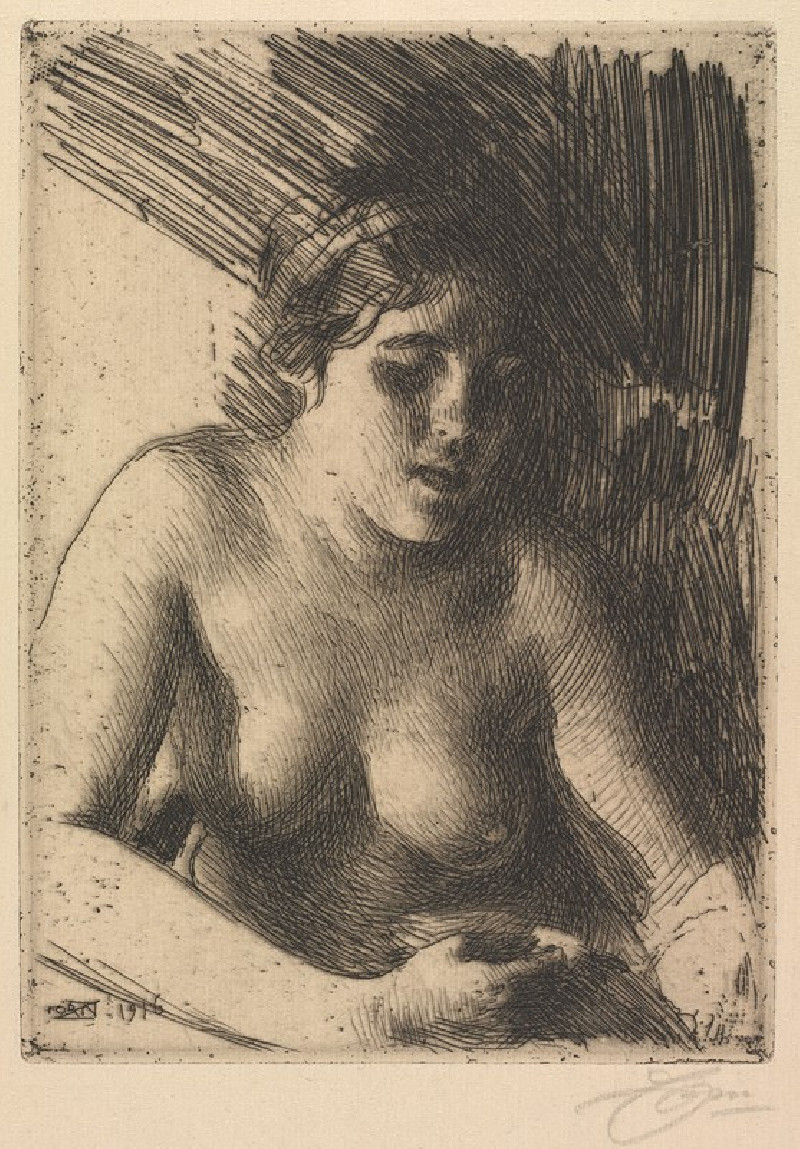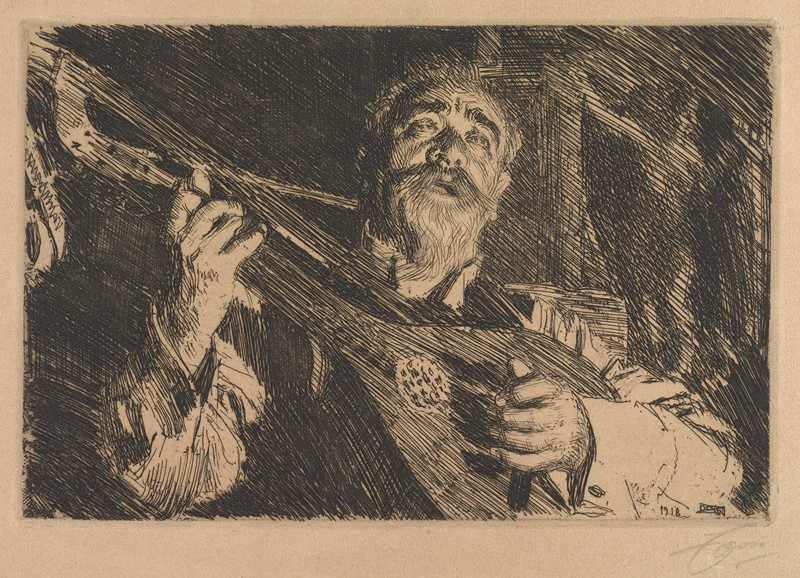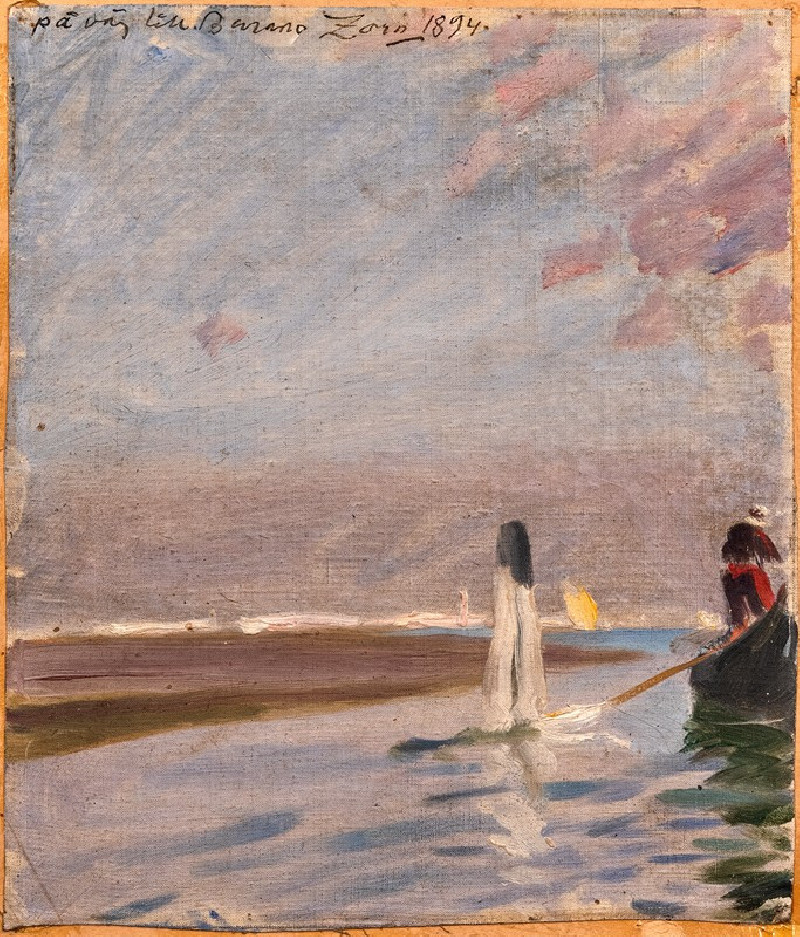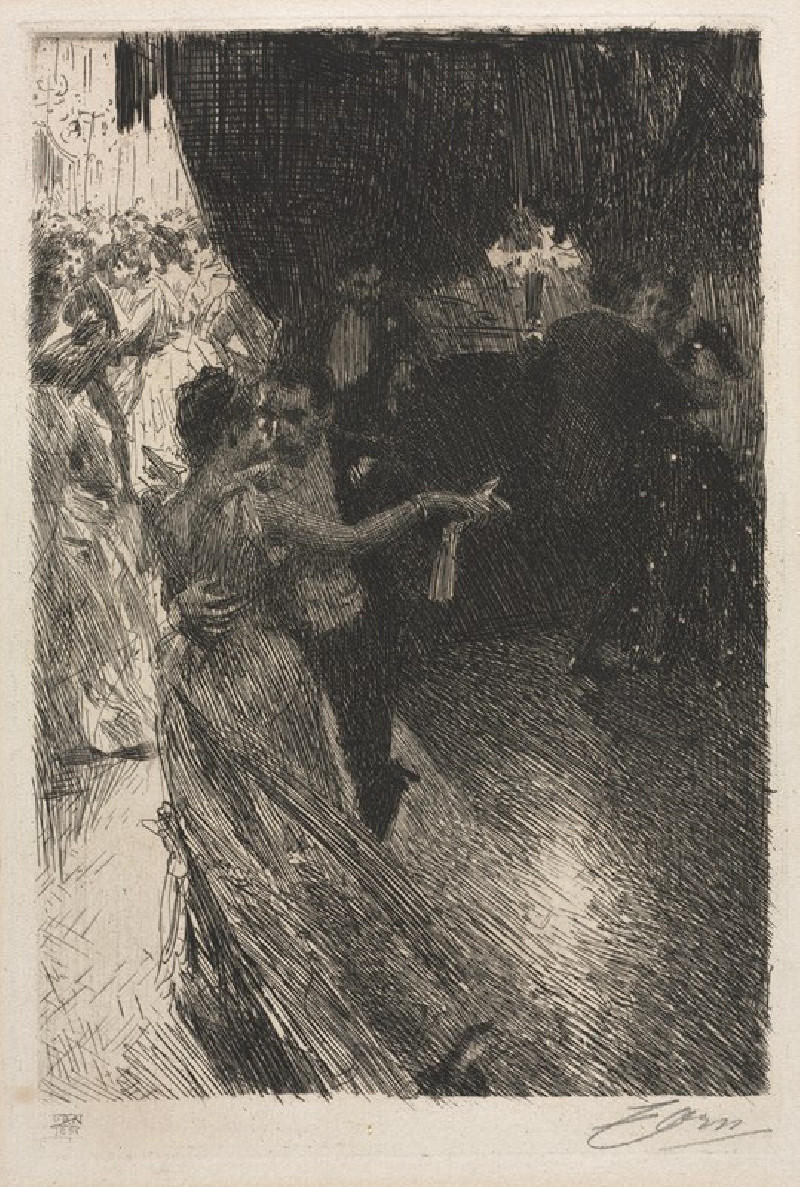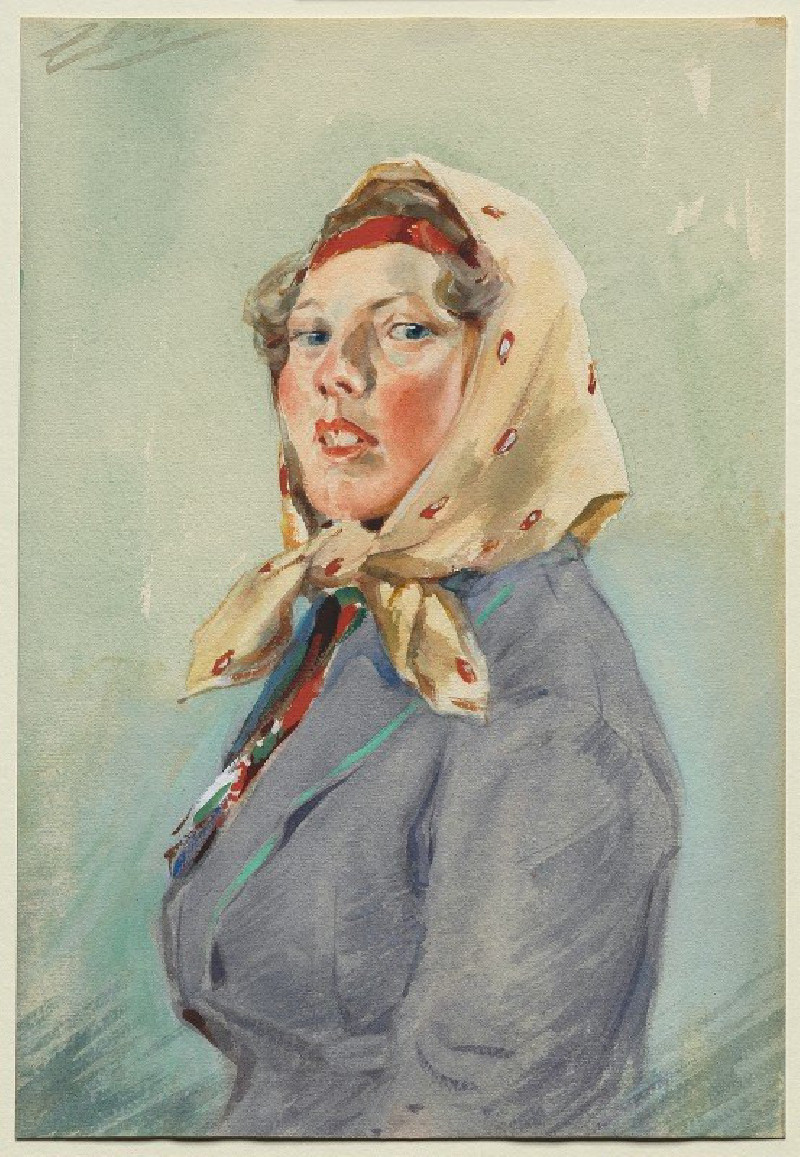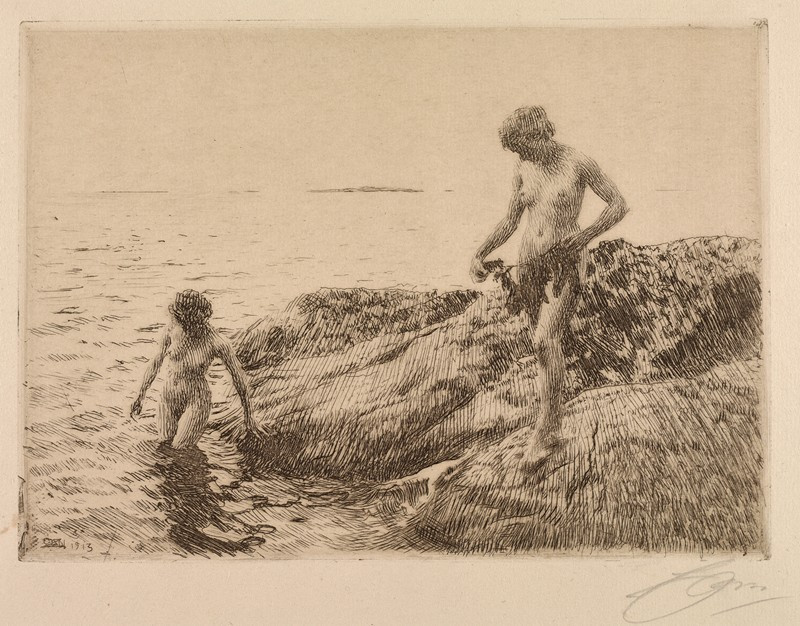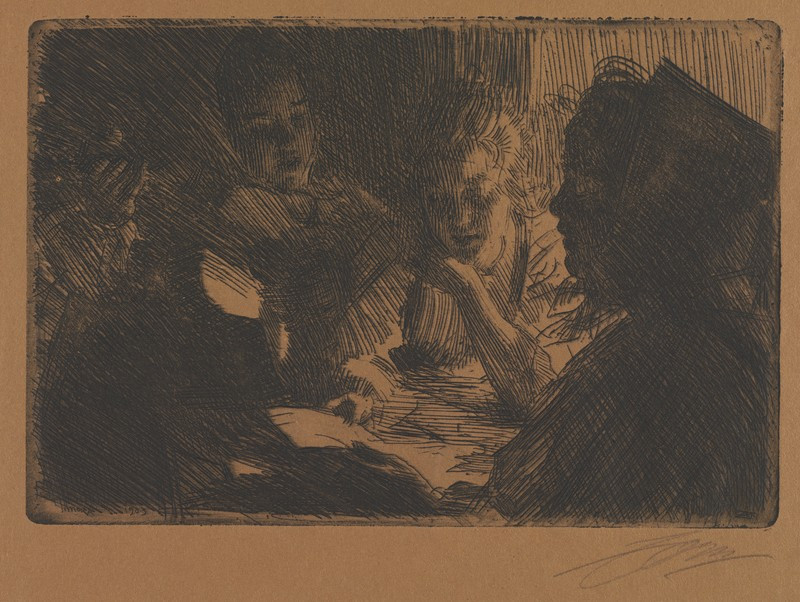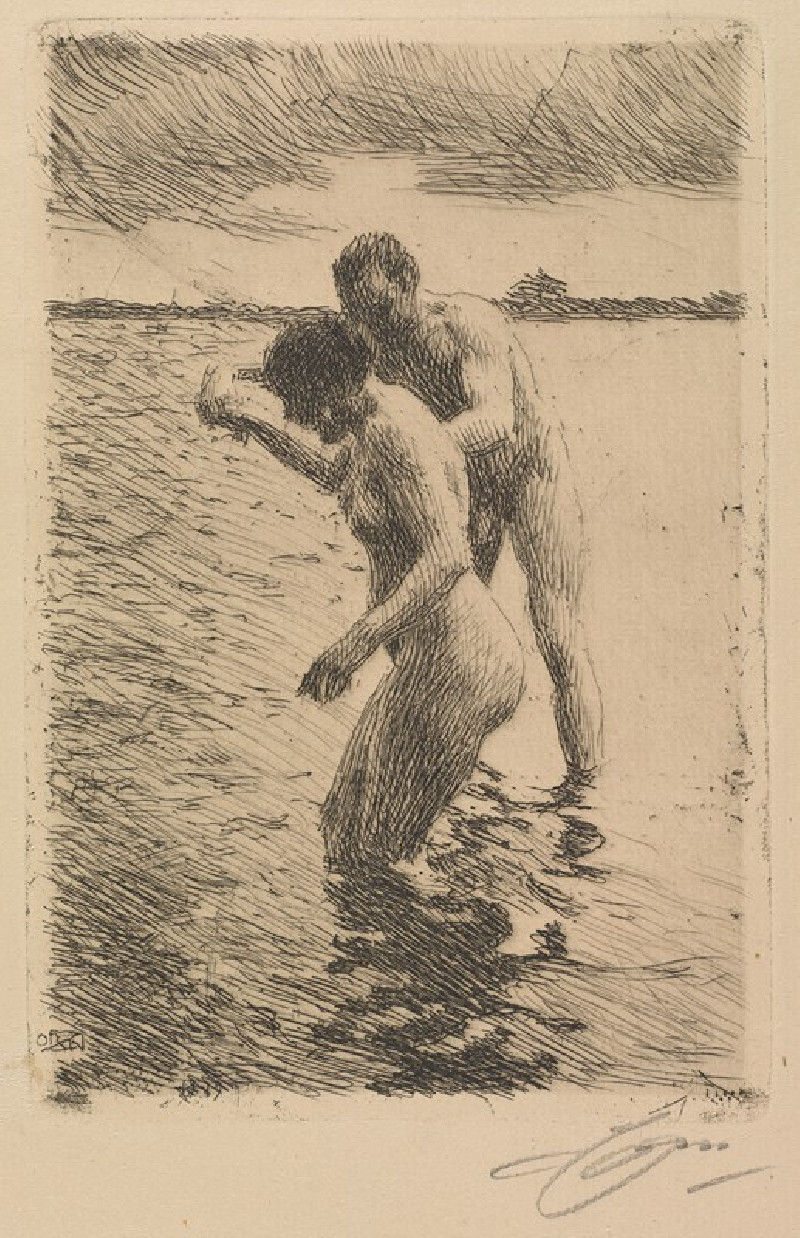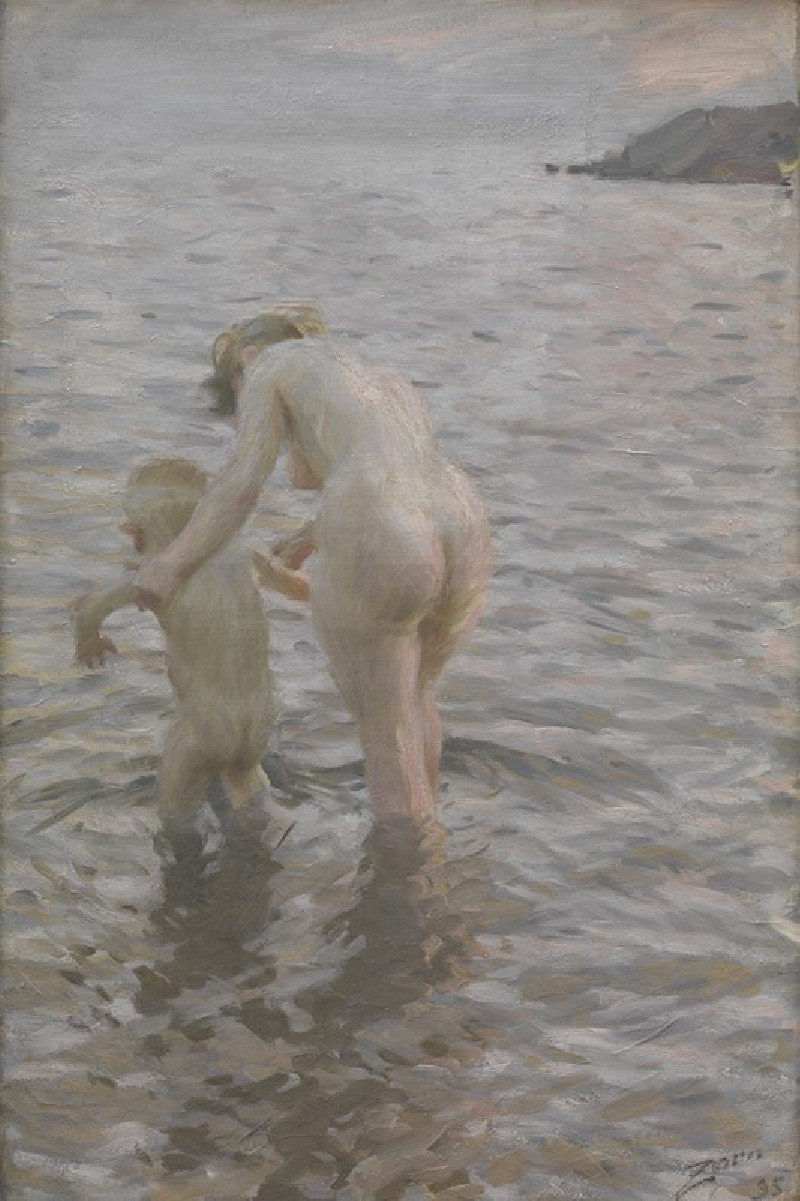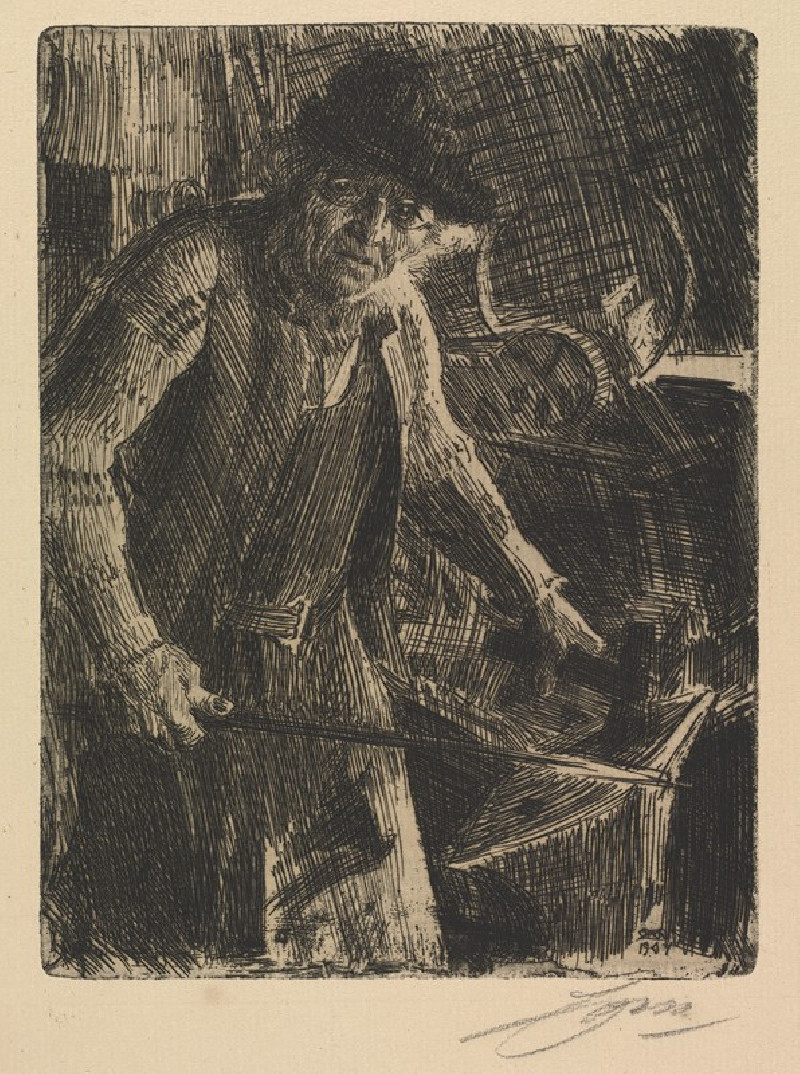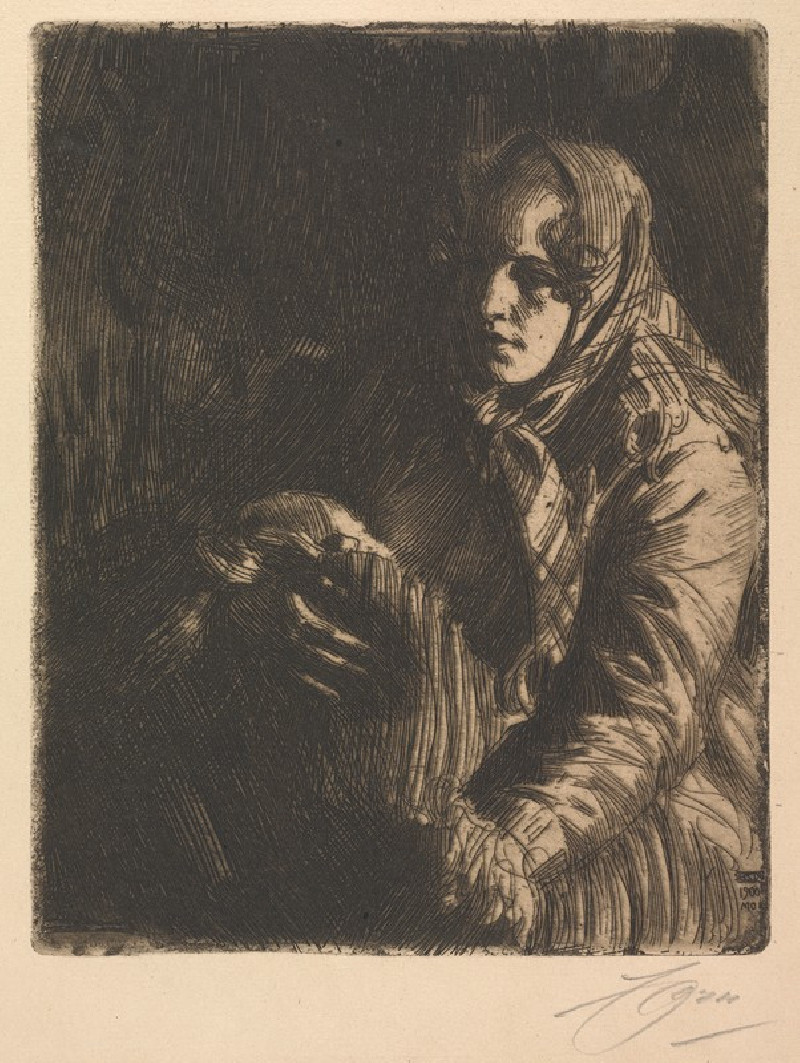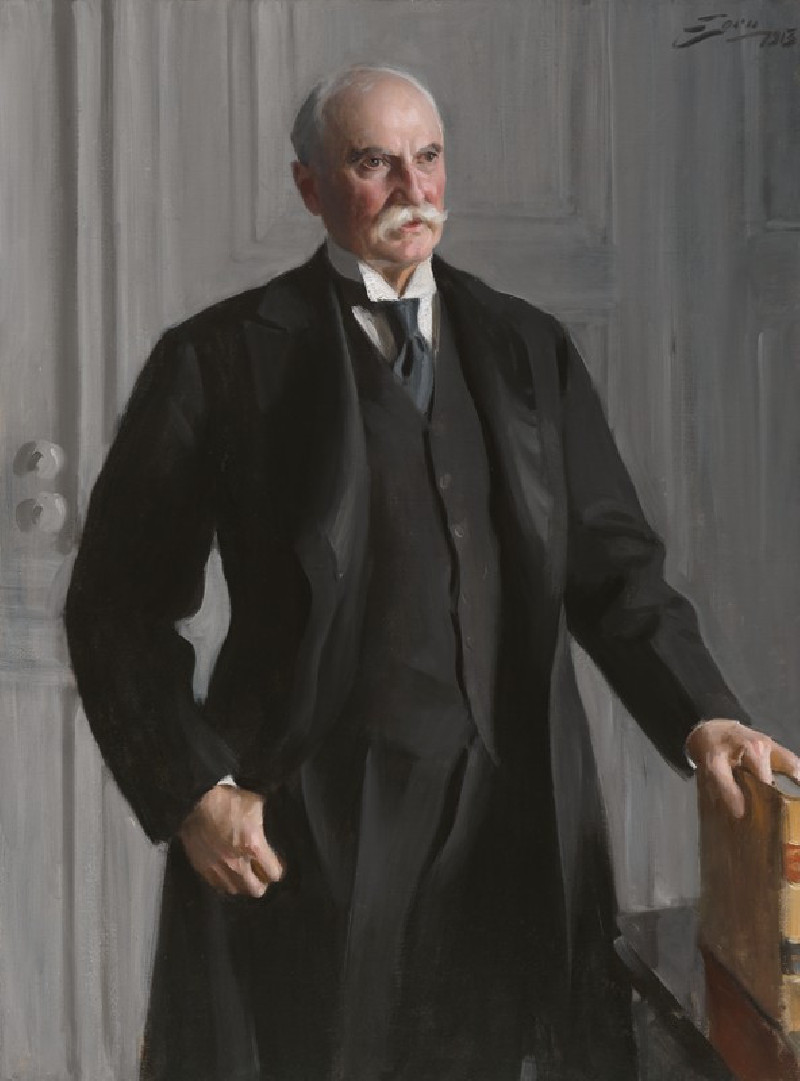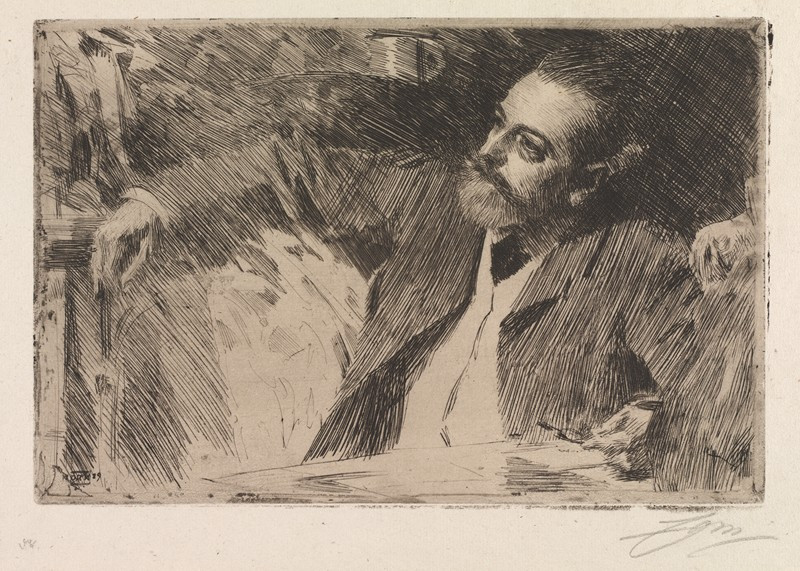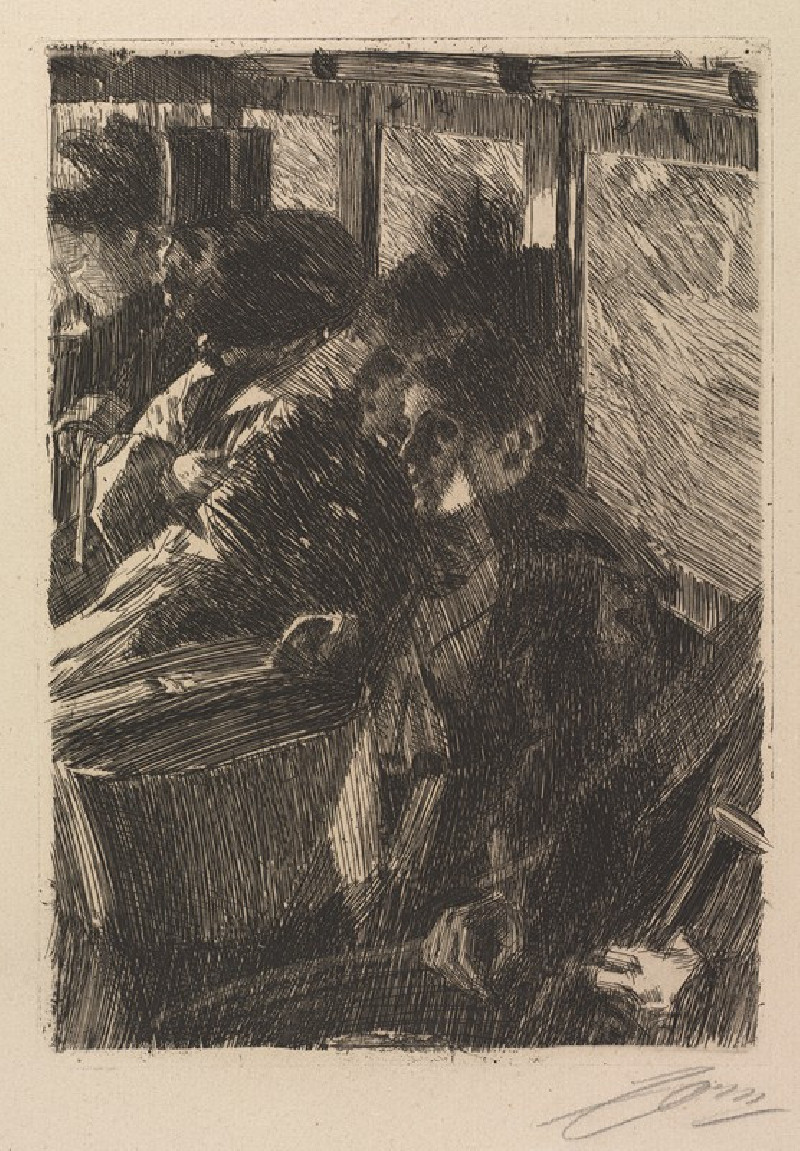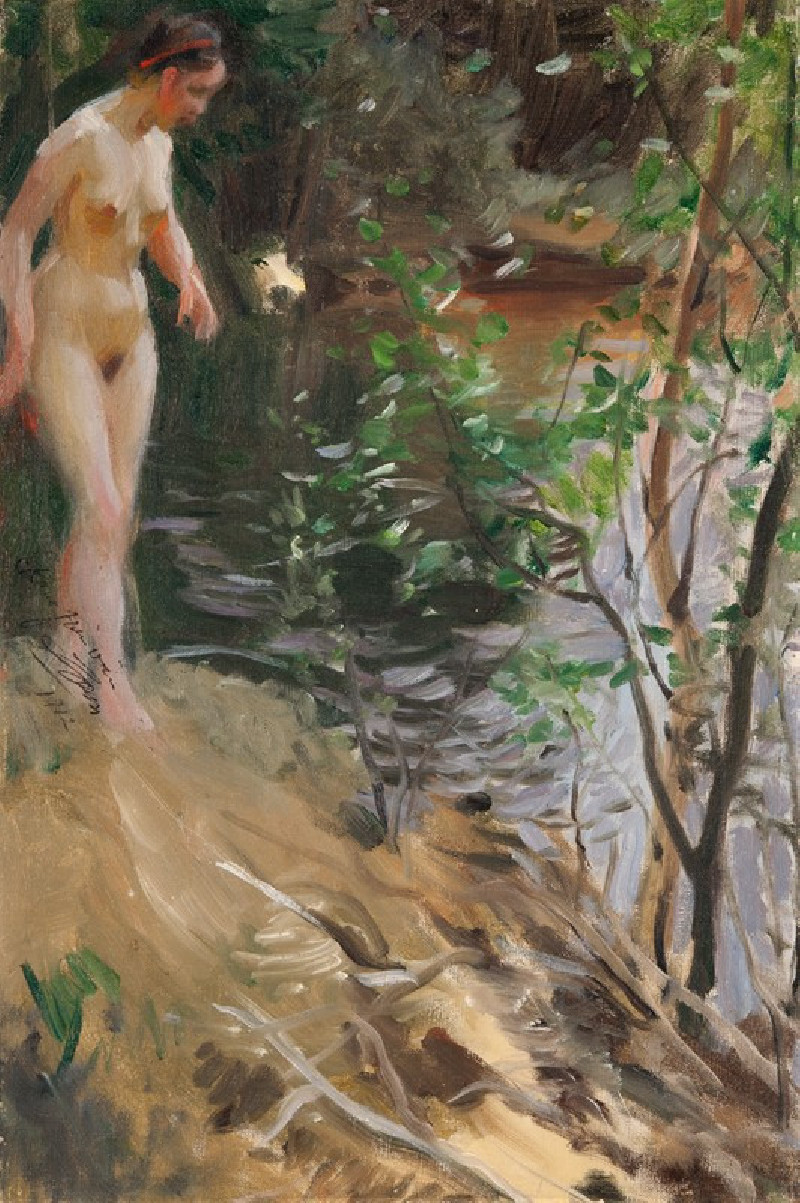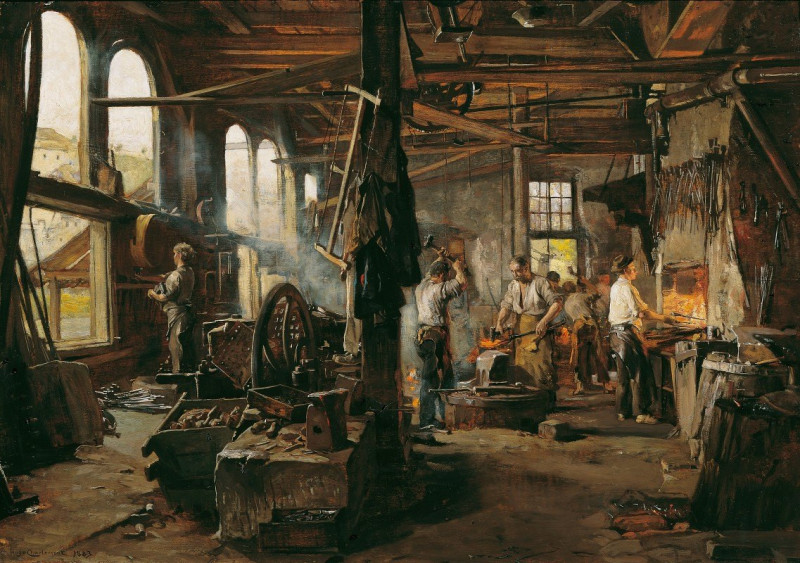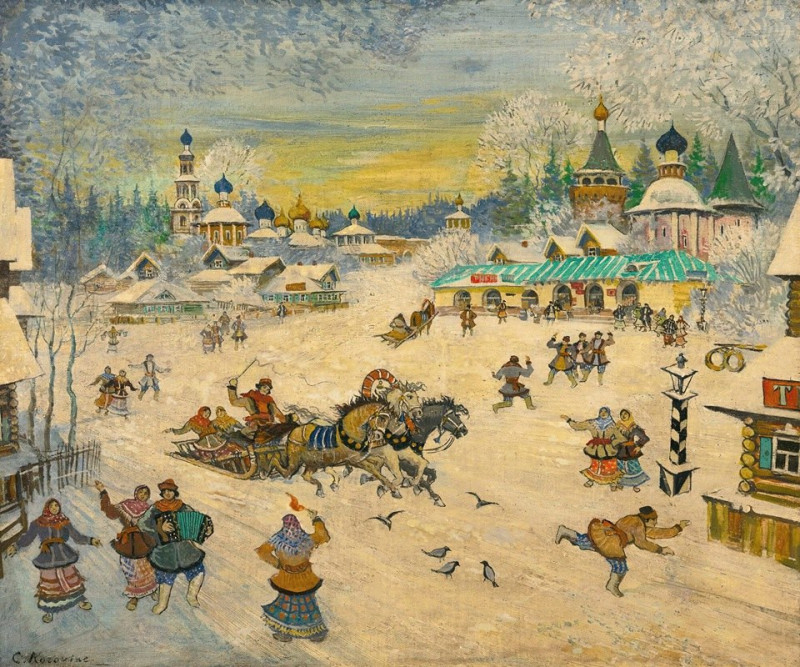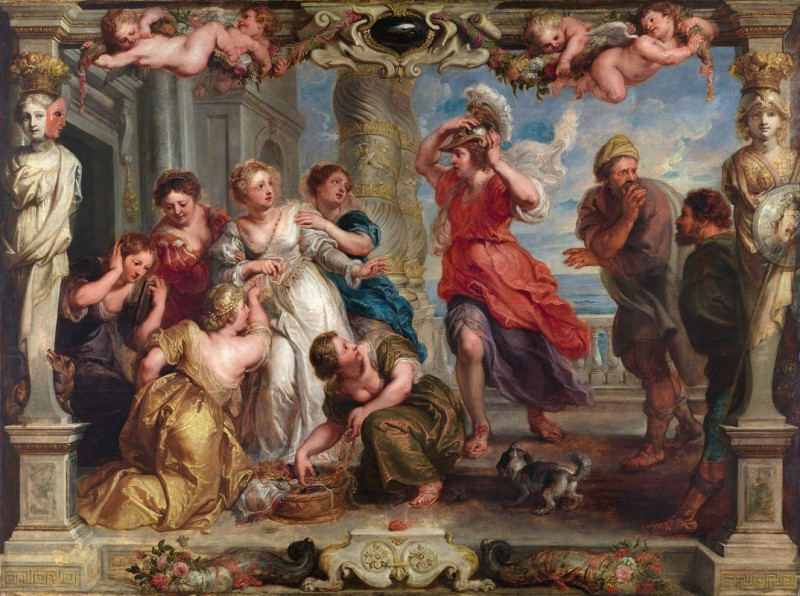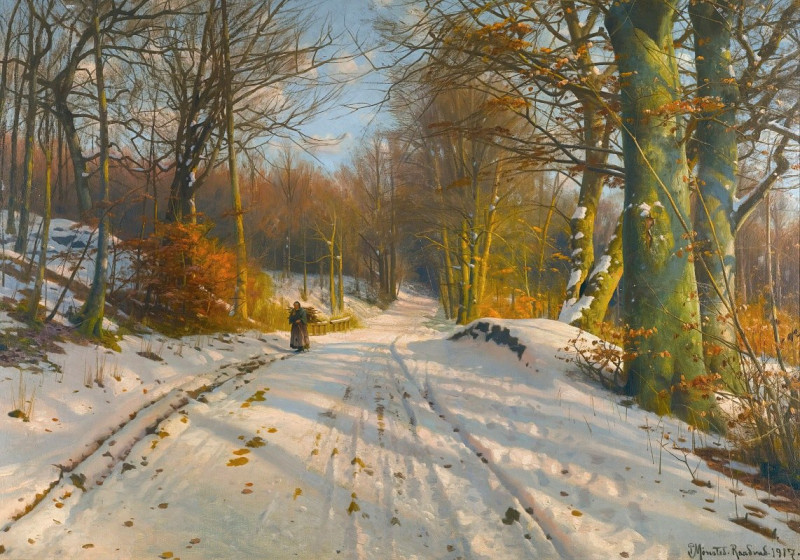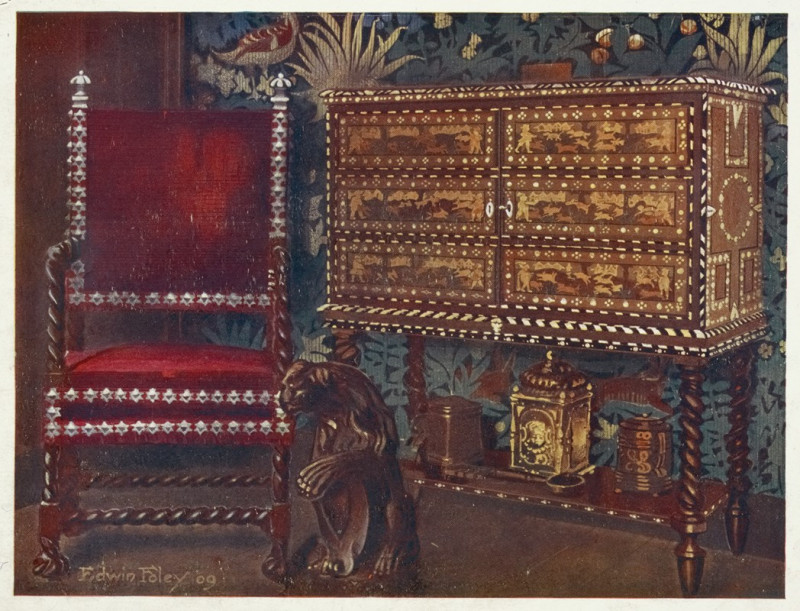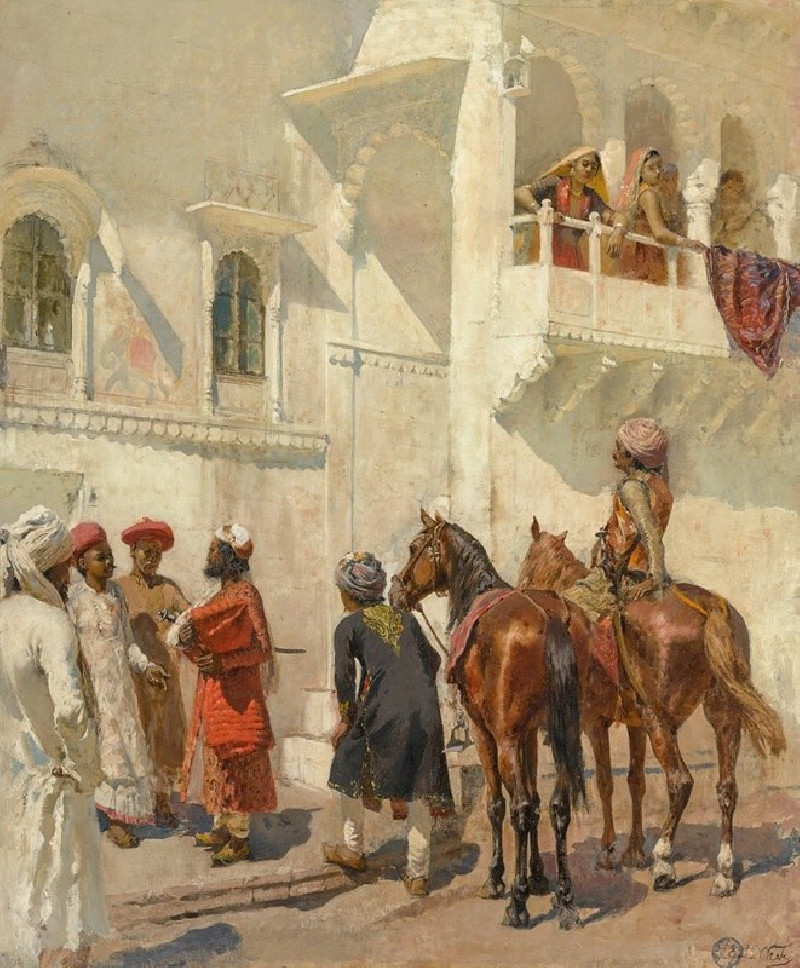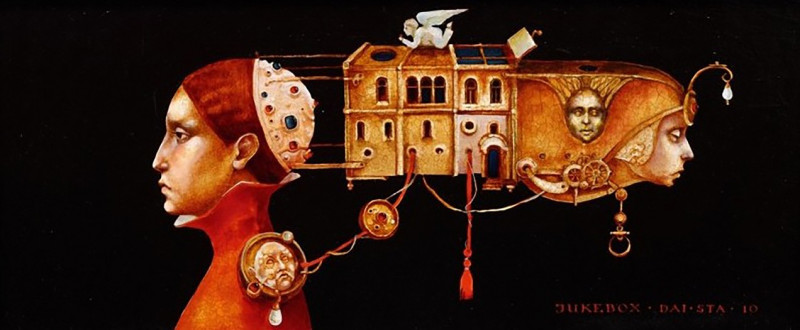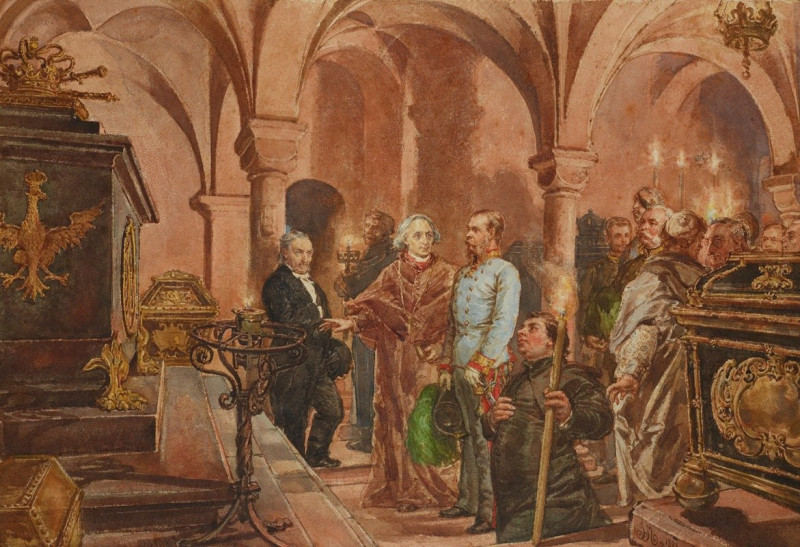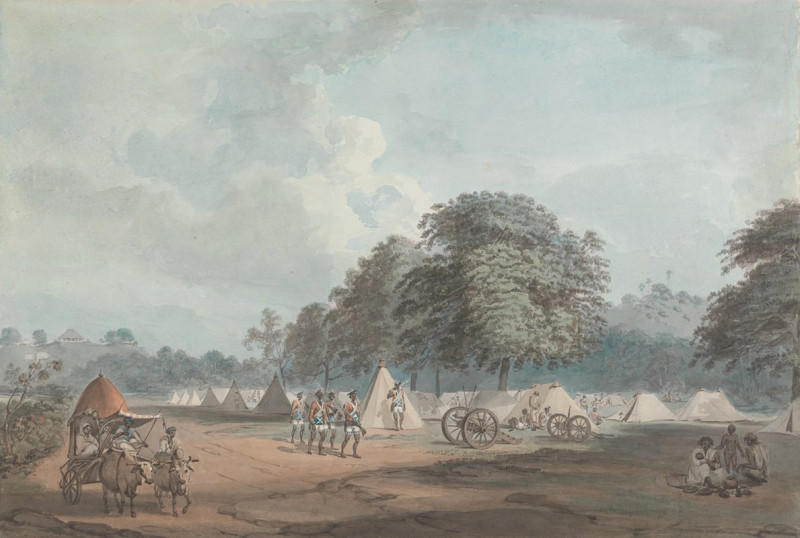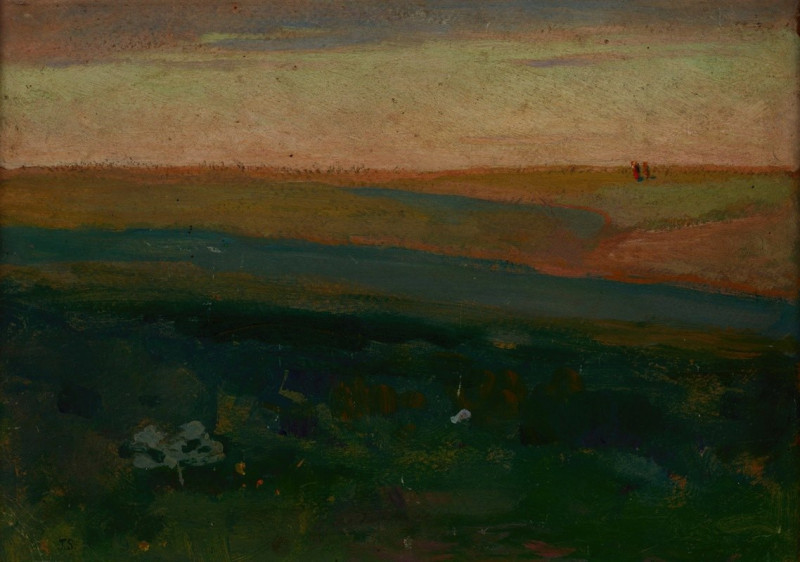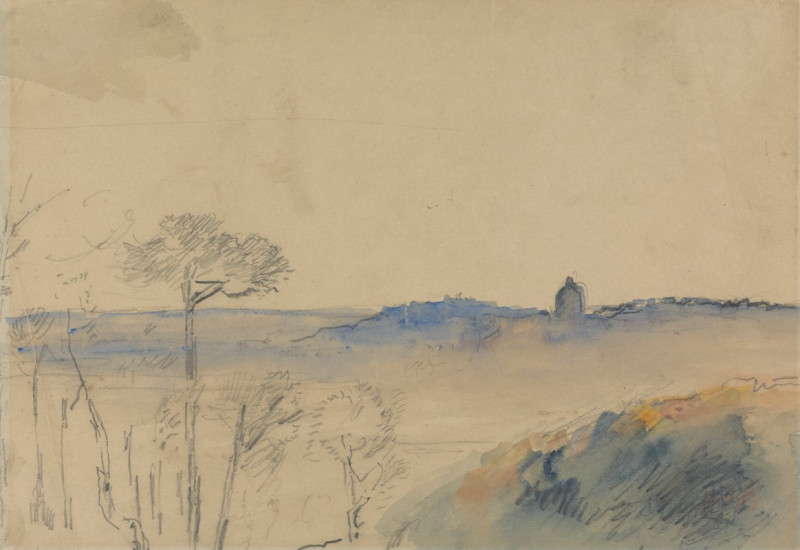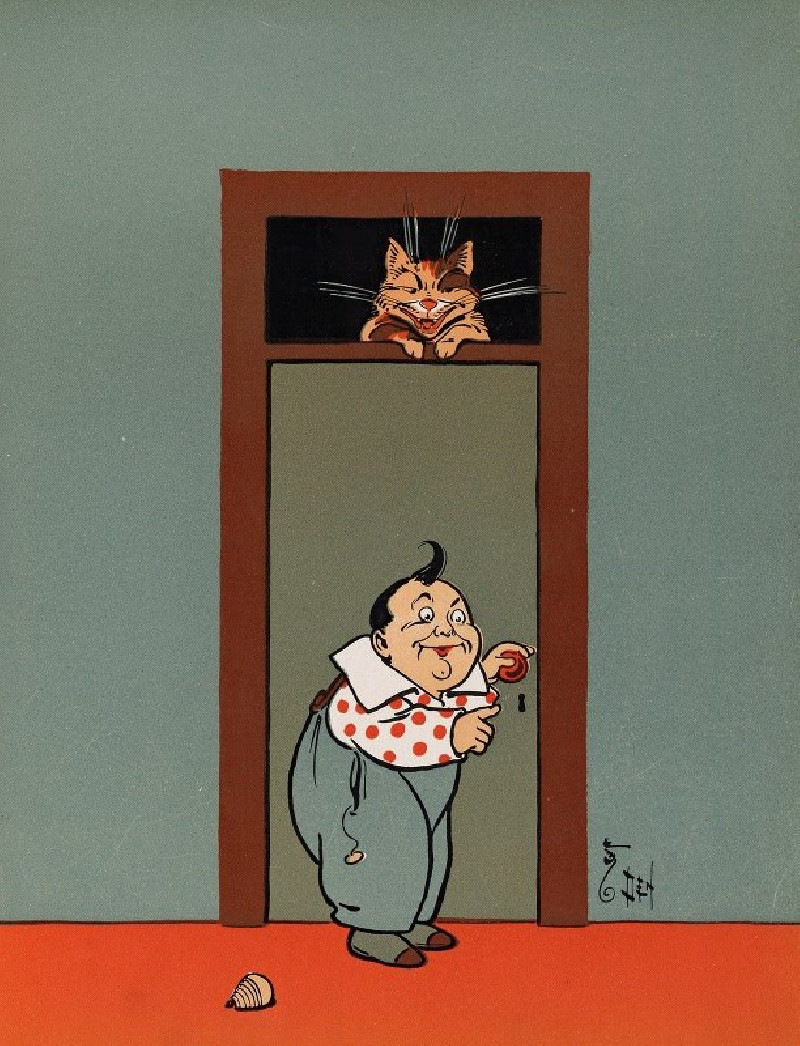Frida (1914)
Technique: Giclée quality print
Recommended by our customers
More about this artwork
We are delighted to present "Frida," an evocative etching created by the eminent Swedish artist Anders Zorn in 1914. This captivating piece of art features an expressive portrait of a young girl, Frida, whose gaze holds a mixture of curiosity and solemnity. Her eyes draw you into a silent conversation filled with intricacies and depth.Zorn's mastery in etching is evident in the delicate yet firm strokes used to detail Frida's attire and the striking contrast between the light and shadow on her features. The young girl's dress is adorned with lace and ribbons, adding a touch of innocence to her complex expression. The background is minimally sketched, keeping the focus primarily on her figure and the emotional intensity of her face.This artwork not only showcases Zorn's incredible skill in capturing human emotions and subtleties but also evokes the viewer's introspection about the subject's internal world.
Delivery
Returns
Anders Leonard Zorn (18 February 1860 – 22 August 1920) was a Swedish painter. He attained international success as a painter, sculptor, and etching artist. Among Zorn's portrait subjects include King Oscar II of Sweden and three American Presidents: Grover Cleveland, William H. Taft, and Theodore Roosevelt. At the end of his life, he established the Swedish literary Bellman Prize in 1920.


